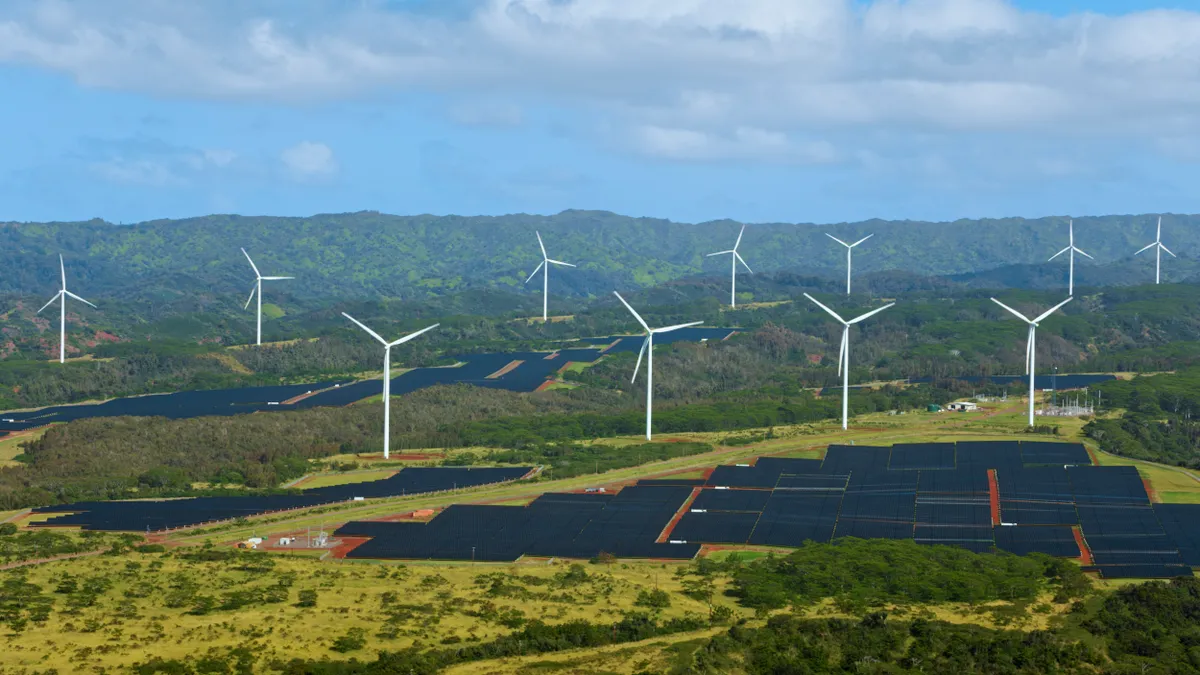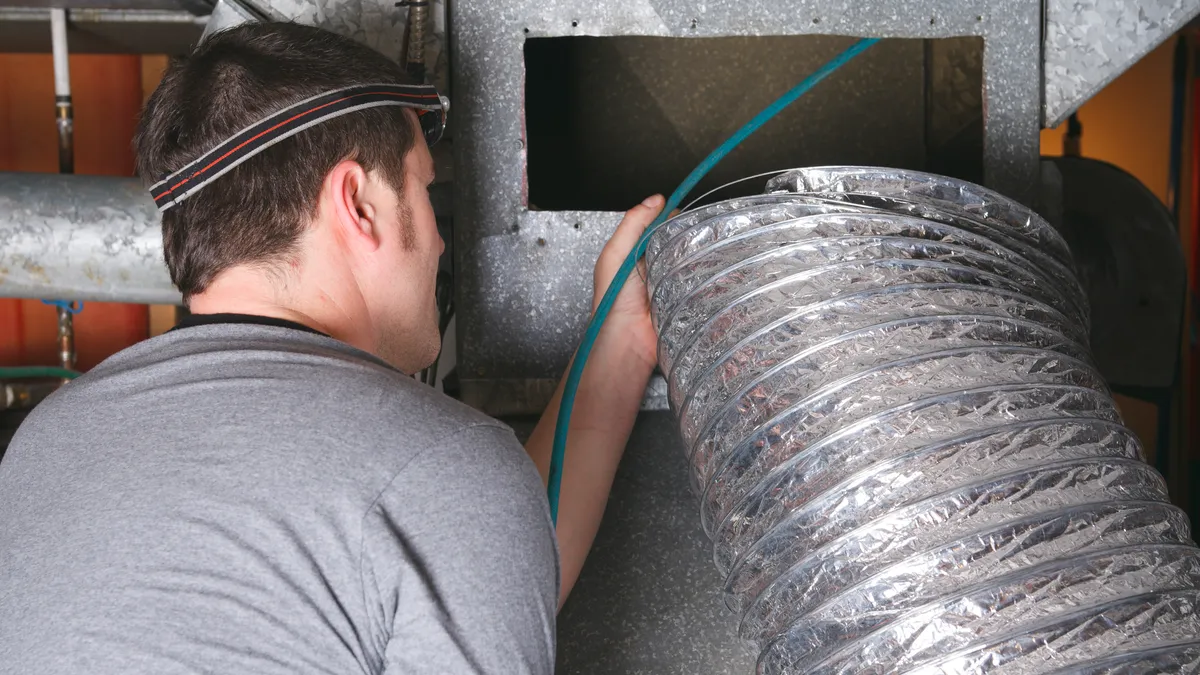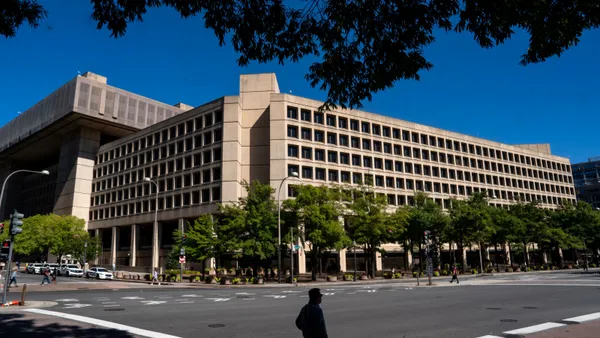Dive Brief:
- The Hawaii Public Utilities Commission is considering taking a closer look at the state’s siting processes for energy infrastructure, and the ways in which they impact communities on the ground, as part of a broader docket focused on energy equity.
- Some of the other areas that regulators are proposing to look at, according to a draft work plan issued Friday, include energy affordability, ensuring equitable access to clean energy, and utility performance and tracking.
- Hawai’i is a smaller market that is reaching levels of renewable penetration quicker than other places, and so is facing some of these equity-related questions sooner than other jurisdictions might, according to Rocky Mould, executive director of the Hawaii Solar Energy Association.
Dive Insight:
Hawai’i regulators in December opened a docket to “investigate how to better integrate equity and justice considerations across commission proceedings and the commission’s work more broadly, including in its role overseeing and regulating the functions of public utilities.” The state has the highest electricity rates in the nation.
Initially, the commission planned to work on four tracks as part of the proceeding: energy affordability and direct payment assistance; equitable access to clean energy; utility business model reforms; and procedural equity improvements.
In its latest work plan, regulators added a fifth track, focused on the siting of new energy projects as well as the harms posed to communities that currently host certain energy infrastructure, like fossil fuel power plants. The agency is asking stakeholders to weigh in on the proposed plan, and will hold two meetings to discuss it with parties on July 6 and July 20.
The commission plans to focus the first phase of the proceeding on three tracks, the first concerning “procedural equity.” Regulators noted that taking part in proceedings can be complicated and costly, and plans to find ways to make its decision-making process more accessible and inclusive.
Secondly, regulators plan to consider ways to make energy more affordable – especially for low-income and moderate-income customers – by pursuing strategies like reforming rate design. Also in this phase, regulators propose tackling the issue of equitable siting and hosting of energy infrastructure.
“[T]he commission acknowledges that the historical siting of fossil fuel infrastructure has disproportionately impacted vulnerable populations,” the draft plan notes.
As part of this, regulators are proposing looking at two separate issues – how to site future energy projects in ways that “improve community outcomes,” as well as mitigating the impacts that existing energy projects have on the communities around them.
In a second phase of this proceeding, anticipated to begin in 2024, the commission is considering looking at two additional tracks. The first is ensuring equitable access to clean energy, especially for lower-income customers, apartment renters, and other groups of people who may find it more difficult to install distributed energy resources. The other is “utility performance and tracking,” under which regulators plan to incorporate the insights of the other four tracks into Hawai’i’s performance-based regulation model.
It makes sense for the commission to plan to tackle the procedural equity track first, although that comes with its own challenges, according to Mould.
“Regulatory processes can be rather arcane, complicated, hard to read [and understand],” for a lot of stakeholders, he said, adding, “it’s going to be interesting to see how the commission and stakeholders walk the tightrope between maintaining the integrity of the process along with opening it to more parties…”
“Hawaiian Electric appreciates the PUC’s investigation of energy equity and looks forward to learning, listening and participating in the process. We acknowledge the challenges to energy equity raised in the docket and want to work with the PUC, energy stakeholders and the community to identify collaborative actions to make efforts to decarbonize our energy system more equitable,” Hawaiian Electric spokesperson Darren Pai said in an email.















